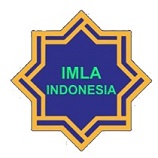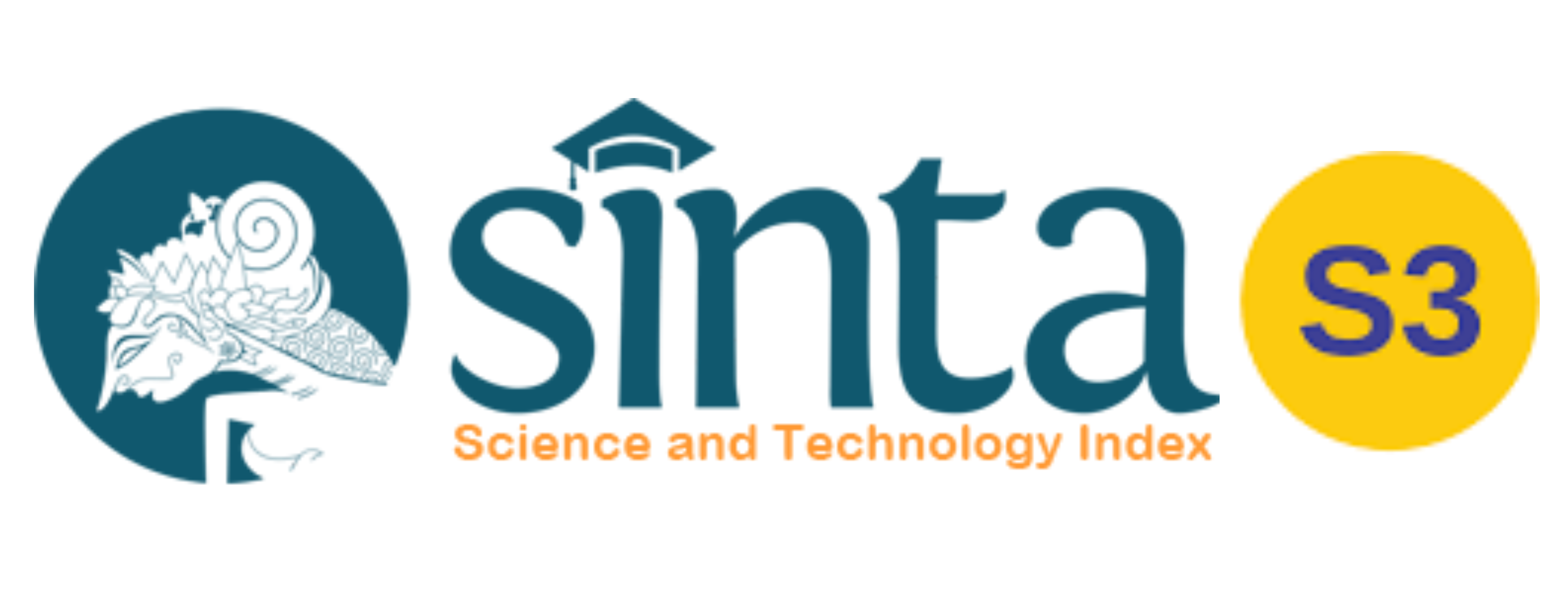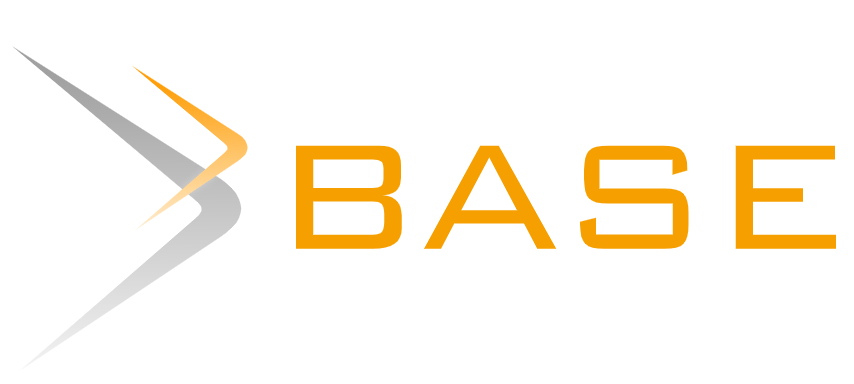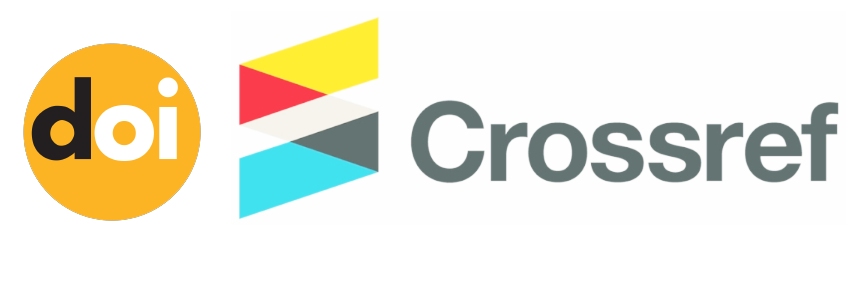- Focus and Scope
- Section Policies
- Peer Review Process
- Open Access Policy
- Archiving
- Publication Ethics
- Indexing
- Plagiarism Policy
- Withdrawal Policy
Focus and Scope
The Center of Middle Eastern Studies (CMES) journal is a distinguished peer-reviewed academic publication dedicated to advancing rigorous scholarly research on Middle Eastern studies. It publishes high-caliber research articles, theoretical studies, and critical reviews that engage with both contemporary and historical issues relevant to the region, employing a multidisciplinary approach.
The CMES journal serves as a dynamic intellectual platform for researchers, academics, and practitioners to exchange innovative findings and perspectives, advancing Middle Eastern studies through a multidisciplinary framework grounded in the epistemological foundations of the humanities and social sciences. In the humanities, the journal emphasizes linguistics, literature, and Arab culture, while in the social sciences, it focuses on politics, economics, education, and the social dimensions of Arab societies. CMES encourages scholarly work that engages these disciplines through monodisciplinary inquiry, interdisciplinary synthesis, or transdisciplinary dialogue, fostering conceptual integration and methodological interaction across disciplinary boundaries.
Manuscripts submitted to CMES must be pertinent to Middle Eastern studies and demonstrate clear engagement with the epistemic traditions of their respective fields. Submissions are expected to exhibit rigorous methodology, original insights, and significant contributions to regional studies, while appealing to a global academic audience.
Section Policies
Articles
Peer Review Process
The Center of Middle Eastern Studies (CMES) employs a double-blind manuscript review process. With a double‐blind review approach, the identity of the both the author(s) and reviewer are unknown to both parties.
Editorial management is conducted through Digital Commons (DC), which systematically handles CMES’s double-blind review process. Once a manuscript is submitted through Digital Commons, it is automatically logged in and checked (by the journal manager) to ensure that the submission is complete and has been prepared according to the Center of Middle Eastern Studies (CMES) submission instructions. At this time a receipt of manuscript acknowledgement is sent to the corresponding author confirming that his/her manuscript has been received and is been considered for possible publication in CMES.
All manuscripts submitted for publication in the Center of Middle Eastern Studies (CMES) are first evaluated by the Managing Editor, either individually or in consultation with the Editorial Board member(s), to assess its suitability for the journal in line with the journal’s aims and scope. This is an important step to ensure that the content falls within the scope of the journal in terms of quality and/or impact on policy. Manuscripts that do not meet the journal’s expected standards are rejected with an explanation of reasons behind a desk-reject decision. Those manuscript’s meeting the journal’s expected standards are then checked for ‘similarity’ (similarity index (SI)) using the iThenticate software. The CMES allows a SI of 20%. Those papers having a SI > 20% are returned to the authors for further re-writing to bring the index to 20% or less. Papers are assigned to at least two reviewers. The reviewers are experienced researchers who have published in high impact factor SCOPUS journals, and are part of the CMES reviewer database. Reviewers are given 14-21 days to provide a detailed report on the manuscript with their recommended decision, which can either be ’accept‘, ’minor revision‘, ’major revision‘, or ’reject‘. Where reviewer reports are in conflict the Managing Editor reads the report(s) and the paper, and conveys the final decision to the corresponding author.
When a 'revise' decision is made, authors are given 2–3 months to complete minor revisions and 3–6 months to complete major revisions. When revised papers are submitted, in the case of minor revisions, the Managing Editor reads the paper and the rejoinder and makes a final decision. In the case of a major revision, resubmitted papers are again assigned to reviewers and the editorial decision proceeds from there.
In all cases, regardless of the reviewer recommendation, the final decision on whether or not to publish a paper rests solely with the Managing Editor who in making the editorial decision keeps in mind the scope/aims of the journal.
Open Access Policy
This journal provides immediate open access to its content on the principle that making research freely available to the public supports a greater global exchange of knowledge.
Archiving
This journal utilizes the LOCKSS system to create a distributed archiving system among participating libraries and permits those libraries to create permanent archives of the journal for purposes of preservation and restoration. More...
Publication Ethics
Publication Ethics and Malpractice Statement
CMES (Center of Middle Eastern Studies) (ISSN 2085-563X Print, ISSN 2502-1044 Online) is a peer-reviewed journal published by Arabic Literature Department, Faculty of Cultural Science, Sebelas Maret University.This statement clarifies ethical behaviour of all parties involved in the act of publishing an article in this journal, including the author, the chief editor, the Editorial Board, the peer-reviewer and the publisher. This statement is based on COPE’s Best Practice Guidelines for Journal Editors.
1. Allegations of Misconduct
CMES (Center of Middle Eastern Studies) upholds integrity in scholarly publication. Allegations of research or publication misconduct—including fabrication, falsification, plagiarism, redundant publication, manipulation of the peer review process, or undeclared conflicts of interest—will be handled according to COPE flowcharts.
All complaints or suspicions may be reported confidentially to the Editor-in-Chief. The editorial office will:
1. Record and acknowledge receipt of the allegation;
2. Conduct an initial assessment;
3. Seek a response from the author(s) within a reasonable time;
4. If necessary, involve the author’s institution or relevant ethics committee; and
5. Publish appropriate outcomes (correction, retraction, or expression of concern).
Confidentiality and fairness are maintained throughout
2. Authorship and Contributorship
Authorship must be limited to individuals who have made significant contributions to the conception, design, execution, or interpretation of the study. All authors must approve the final manuscript and agree to its submission.
CMES (Center of Middle Eastern Studies) encourages transparent author contribution statements (e.g., conceptualization, methodology, analysis, writing).
Any request for addition, removal, or rearrangement of authors after submission must be approved by all co-authors and justified in writing. Disputes regarding authorship will follow COPE’s guidance.
3. Complaints and Appeals
CMES (Center of Middle Eastern Studies) provides a transparent mechanism for handling complaints about editorial conduct, decisions, or publication ethics.
1. Authors may appeal an editorial decision by writing to the Editor-in-Chief within 30 days of notification, providing clear reasons and supporting evidence;
2. Complaints about editorial behaviour, bias, or ethical breaches can be submitted to the Managing Editor or Faculty of Cultural Science Ethics Committee.
All appeals and complaints will be acknowledged, reviewed independently, and concluded transparently. The final decision rests with the Editor-in-Chief.
4. Conflicts of Interest
All parties—authors, reviewers, and editors—must disclose any financial, personal, or institutional relationships that could influence their work.
1. Authors must declare all funding sources and potential conflicts in their manuscripts.
2. Reviewers must decline assignments if a conflict exists (e.g., collaboration, competition, or personal connection).
3. Editors must recuse themselves when handling manuscripts involving potential conflicts.
Disclosures will be published within the article, and any undisclosed conflict discovered post-publication may lead to correction or retraction.
5. Data and Reproducibility
Authors must ensure that data supporting the results are accurately represented and available upon reasonable request.
CMES (Center of Middle Eastern Studies) encourages data sharing through reputable repositories and requires a Data Availability Statement in each article.
Authors are responsible for transparency in methodology and adherence to appropriate reporting guidelines. Falsification or selective reporting constitutes misconduct.
6. Ethical Oversight
Research involving human participants, animals, or sensitive data must comply with institutional and international ethical standards.
1. Authors must state that ethical approval was obtained (including IRB name and reference number).
2. For human research, informed consent must be obtained and participants’ privacy protected.
3. For animal studies, authors must confirm compliance with ethical standards and welfare protocols.
4. Failure to obtain proper ethical oversight may result in rejection or retraction.
7. Intellectual Property and Plagiarism
CMES (Center of Middle Eastern Studies) publishes under the Creative Commons Attribution 4.0 International License (CC BY 4.0).
Authors retain copyright but grant CMES (Center of Middle Eastern Studies) the right of first publication.
All submissions are screened with plagiarism-detection software (Turnitin).
Plagiarism, duplicate or redundant publication, and self-plagiarism are strictly prohibited. Submissions exceeding the similarity threshold or reproducing copyrighted material without permission will be rejected or retracted.
Authors must ensure all figures, tables, and text are original or properly cited.
8. Journal Management
CMES (Center of Middle Eastern Studies) is published by the Faculty of Cultural Science, Universitas Sebelas Maret.
Editorial independence is guaranteed: commercial, institutional, or sponsor interests shall not influence editorial decisions.
The journal’s management maintains transparency in:
1. Editorial board membership and responsibilities,
2. Peer review procedures,
3. Article processing charges and waiver policy, and
4. Training for editors and reviewers.
All processes are reviewed annually to ensure compliance with COPE and national standards (SINTA 3 accreditation).
9. Peer Review Process
CMES (Center of Middle Eastern Studies) applies a double-blind peer review system. Manuscripts are evaluated by at least two independent experts based on originality, validity, ethical soundness, and relevance.
Editors ensure reviewers have no conflicts of interest. Reviewers are expected to maintain confidentiality, provide objective feedback, and return reviews promptly.
Authors may appeal review outcomes by providing justification and evidence. Review manipulation or coercion will be treated as misconduct.
Reviewer training and recognition are conducted regularly in line with COPE recommendations.
10. Post-Publication Discussion and Corrections
CMES (Center of Middle Eastern Studies) supports open post-publication dialogue. Readers may submit comments or letters addressing published articles.
Corrections, corrigenda, errata, or retractions will be issued when errors or ethical breaches are verified.
Retractions follow COPE’s Retraction Guidelines and will clearly state the reason (e.g., error, misconduct, ethical non-compliance).
Expressions of concern may be published if investigations are ongoing. All updates remain permanently linked to the original article.
Author Fees
This journal charges the following author fees.
Article Submission: 0.00 (IDR)
Article Publication: 0.00 (IDR)
This journal is fully sponsored by the Arabic Literature Department, Faculty of Cultural Sciences, Universitas Sebelas Maret, eliminating the need for authors to pay any fees for submission and publication. We are committed to ensuring that CMES Journal remains an accessible platform for researchers and scholars, supporting the dissemination of knowledge in Middle Eastern studies without imposing any financial burden on authors.
Plagiarism Policy
Every manuscript submitted for publication in CMES (Center of Middle Eastern Studies) Journal is checked for plagiarism after submission and before being sent to an editor for editorial review.
CMES (Center of Middle Eastern Studies) uses ‘Turnitin Software’ to detect instances of overlapping and similar text in submitted manuscripts.
How are manuscripts with plagiarism handled?
The manuscripts in which plagiarism is detected are handled based on the extent of plagiarism present in the manuscript.
<5% plagiarism - The manuscript is assigned a manuscript ID and it is immediately sent back to the authors for content revision.
5–20% plagiarism - The manuscript is NOT assigned a manuscript ID and it is immediately sent back to the authors for content revision.
>20% plagiarism - The manuscript is rejected without editorial review. The authors are advised to revise the plagiarized parts of the manuscript and resubmit it as a fresh manuscript.
Retraction
The papers published in CMES (Center of Middle Eastern Studies) will be considered to retract in the publication if:
1. They have clear evidence that the findings are unreliable, either as a result of major error (eg, miscalculation or experimental error), or as a result of fabrication (eg, of data) or falsification (eg, image manipulation);
2. It constitutes plagiarism;
3. The findings have previously been published elsewhere without proper attribution to previous sources or disclosure to the editor, permission to republish, or justification (ie, cases of redundant publication);
4. It contains material or data without authorisation for use;
5. Copyright has been infringed or there is some other serious legal issue (eg, libel, privacy);
6. It reports unethical research;
7. It has been published solely on the basis of a compromised or manipulated peer review process;
8. The author(s) failed to disclose a major competing interest (a.k.a. conflict of interest) that, in the view of the editor, would have unduly affected interpretations of the work or recommendations by editors and peer reviewers;
The mechanism of retraction follows the Retraction Guidelines of Committee on Publication Ethics (COPE) which can be accessed at:
https://doi.org/10.24318/cope.2019.1.4
Publication Ethics on Artificial Intelligence (AI) Usage
1. General Principle
CMES (Center of Middle Eastern Studies) recognizes that Artificial Intelligence (AI) and machine-learning tools (e.g., ChatGPT, Gemini, Copilot, Grammarly, etc.) can assist research and writing processes. However, AI cannot replace human authorship, accountability, or critical judgment.
Any use of AI in preparing manuscripts must uphold principles of transparency, integrity, and responsibility consistent with COPE Core Practices.
2. Prohibition of AI Authorship
AI tools and automated systems cannot be listed as authors or co-authors.
Authorship implies accountability for originality, intellectual contribution, and ethical responsibility—qualities that AI systems do not possess.
Only human contributors who meet authorship criteria (conceptualization, analysis, writing, approval) can be credited as authors.
3. Disclosure and Transparency
Authors must explicitly disclose in the manuscript if and how AI tools were used, including:
1. the name and version of the tool,
2. the purpose of use (e.g., grammar correction, data analysis, translation, image generation, text summarization), and
3. the extent of human oversight.
A statement such as the following must be included in the Acknowledgments or Methods section:
“Portions of this manuscript were assisted by [AI tool name, version], used for [describe purpose]. All interpretations, analyses, and conclusions are the author’s own responsibility.”
Failure to disclose AI use is considered a breach of publication ethics.
4. Integrity and Verification
Authors are fully responsible for:
1. the accuracy, originality, and truthfulness of all AI-generated or AI-assisted content,
2. verifying that AI output does not contain fabricated data, false citations, or plagiarized material, and
3. ensuring AI tools have not accessed confidential or restricted data.
Editors may request the submission of AI-prompt logs or methodological explanations when necessary to verify transparency.
5. Ethical and Legal Compliance
The use of AI must not:
1. compromise data privacy or participant confidentiality,
2. involve unauthorized use of copyrighted or personal data,
3. generate or manipulate images, audio, or text in a deceptive way,
4. be used to fabricate or falsify research results.
AI applications for predictive legal analysis, case generation, or text summarization must comply with data-protection law (including Indonesia’s Law No. 27 of 2022 on Personal Data Protection) and academic integrity standards.
6. Editorial and Peer Review Integrity
AI tools must not be used by editors or reviewers to:
1. read, summarize, or evaluate confidential manuscripts, or
2. generate review reports.
Peer review relies on expert human judgment; any use of AI by reviewers must be declared to the Editor-in-Chief and approved before use.
Editors will apply AI-detection tools only to support, not replace, human assessment of originality and language quality.
7. Data Management and Reproducibility
If AI or machine-learning models are part of the research method, authors must provide:
1. sufficient detail for reproducibility (model type, parameters, training data sources, validation process),
2. ethical approval (if human or legal data were used), and
3. a statement on data provenance and bias mitigation.
Datasets or algorithms trained on sensitive legal cases, personal data, or court documents must ensure anonymization and legal compliance.
8. Sanctions for Misuse
Undisclosed or unethical use of AI (e.g., ghostwriting, text fabrication, deepfake imagery, or citation falsification) constitutes scientific misconduct.
Sanctions include rejection before publication, retraction after publication, or notification to the author’s institution following COPE flowcharts.
9. Continous Monitoring
Editors and reviewers will receive training on identifying and responsibly integrating AI tools in research assessment.
Model Disclosure Example for Authors
AI-Use Disclosure: The authors used OpenAI’s GPT-5 (October 2025 version) to refine the English grammar of this manuscript. The authors reviewed, verified, and are responsible for all final content.
CMES (Center of Middle Eastern Studies) will periodically review its AI-ethics policy to adapt to evolving standards of COPE, WAME, and the Indonesian Committee on Publication Ethics (KNEP).
Editors and reviewers will receive training on identifying and responsibly integrating AI tools in research assessment.
Indexing
CMES has been indexed on, among others:
- Sinta
- DOAJ (Directory of Open Access Journal)
- Crossref
- BASE
- WorldCat
- Google Scholar
- Dimensions
- Mendeley
- Indonesian Scientific Journal Database (ISJD)
- Garuda
- One Search
Plagiarism Policy
CMES Journal places a strong emphasis on academic integrity and originality. The journal adopts a strict policy on plagiarism, self-plagiarism, and the inappropriate use of AI-generated content to protect the authenticity of published works.
1. Plagiarism and AI Screening using Turnitin.com
All manuscripts submitted to CMES Journal are checked for similarity using plagiarism detection software (e.g., Turnitin).
The editorial team conducts similarity checks twice: first before peer review, and again prior to final publication.
A similarity index and AI-generated score of no more than 20% is considered acceptable. Manuscripts exceeding this threshold will be returned to the authors for revision or may be rejected.
2. Originality
Manuscripts must represent original work that has not been published elsewhere and is not under consideration by another journal. Any practice of plagiarism, including unattributed use of another author’s ideas, text, or data, is strictly prohibited and will lead to rejection.
3. Self-Plagiarism
Authors are expected to avoid duplicate or redundant publication of their own previously published work. Limited reuse of prior work is permitted only with proper citation and acknowledgement.
4. Use of AI Tools
Generative AI and AI-assisted tools must not be used to create substantive content (e.g., ideas, arguments, data, or analysis) in manuscripts submitted to CMES Journal.
Authors may use AI tools only to improve language clarity or readability, with full author responsibility and oversight.
The editorial team reserves the right to screen for inappropriate or undisclosed AI-generated content.
CMES Journal upholds these policies to maintain rigorous scholarly standards and to safeguard the trust of the academic community.
Withdrawal Policy
The author is not allowed to withdraw the submitted manuscript once it has entered the review process. Withdrawal is considered a waste of valuable resources, as editors and reviewers spend a great deal of time processing and evaluating the manuscript, and the publisher has already invested efforts in handling the submission.
However, authors may request withdrawal if there is no update on the review progress after six (6) months from the date of submission, and no decision has been communicated by the journal.
Email for withdrawal requests: cmes@mail.uns.ac.id















